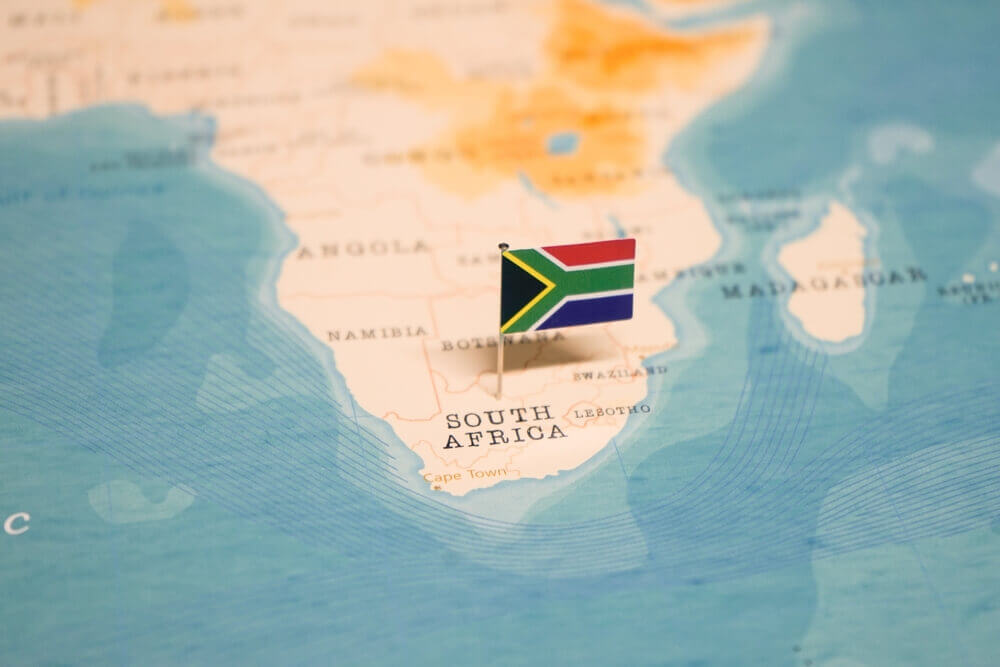B2B Payment Security: How to Protect Your Business from Payment Fraud in 2026
Discover strategies to enhance B2B payment security, reduce fraud risk, and protect cash flow using secure digital payment methods and automated workflows.

If you're considering moving to South Africa to start a new business there, you'll need to know how. Read this guide to learn more about starting a business in South Africa.
We’ll also talk to you about the Wise Business account, which will help you manage your global business through holding, sending and receiving funds in multiple currencies.
Will your South African business operate internationally?
Send payments across
currencies with Wise >>
Wise Trustpilot Rating: Great after 200,000+ reviews¹
In order to establish a business entity in South Africa, foreigners need to get a business permit.
There are two ways to make yourself eligible for a business permit:
Most commonly, foreigners investing in South Africa will do so through a company structure. There are three different options here — a Private (Ltd.), Public (Pty Ltd.), or Personal Liability Company (Inc). Typically, a Private company is easiest, requiring only one director and one shareholder, who doesn’t have to be resident in South Africa.
There are several types of corporate entity commonly used in South Africa:
Let's take a look at the different
A sole proprietorship is a type of business that is owned and managed by one person – no partners, no board of directors, and no shareholders to weigh in. Just one person makes all the decisions
Another thing to note is that this type of business is an unincorporated business structure, which means there isn’t a separation between the owner and the business. Certain risks accompany this business structure when you are not separated from the business you run. If legal problems arise, it means that you might be held liable for issues that occur within your business.
If you’re running a profit making business you’ll probably opt for a company which is limited by shares. This type of business entity is legally separate to the owner and directors, holds its finances separately to your personal finances, and must have at least one named shareholder. The owners of this type of business can keep any profits after tax for themselves or to reinvest.
A Partnership, which can also be called an unincorporated joint venture, consists of at least two individuals conducting a business, trade, or other professional activity. A partnership is not a separate legal entity. Accordingly, you will need to pay tax on your share of the profits if you’re a partner.
A close corporation (CC) is similar to a private company and must register as a taxpayer. A CC doesn’t have shares or shareholders, and the owners are the members of the CC. This type of business cannot be opened any longer in South Africa.
The external company structure might be useful if you already have a business and are looking to expand your operations to South Africa. If you start doing business in South Africa with a company that is registered elsewhere, you must register your activities within twenty days of starting, with the Companies and Intellectual Property Commission (CIPC).
Wise Business allows you to make and receive international payments across currencies easy and transparent. This can be cheaper and faster compared to traditional providers.
Why? Because Wise Business offers the mid-market exchange rate without any mark-ups. Transfers are typically processed in 0–2 working days.
Additional benefits are:
This process should take a few days for a basic name reservation. If you’re incorporating a subsidiary with a standard Memorandum of Incorporation (MOI) it is 10 days. For more bespoke items, it can take upwards of one month.⁶
A positive part about registering with CIPC is that you’re then automatically registered with the South African Revenue Service (SARS).
While some other articles highlight that you should register with SARs separately, SARs will point you to CIPC first, as they will generate an income tax reference number for you automatically.⁷
The legal requirements for managing and maintaining employees in South Africa has a few basic requirements. For instance, they should be registered for unemployment insurance, the skills development levy, and Compensation for Occupational Injuries and Diseases Act 130 of 1993. If your employee is earning more than R40,000 annually, then you register them for Pay As You Earn.⁸
You’ll also want to familiarize yourself with the laws for hiring employees, working visas (if hiring individuals from outside of South Africa), payroll taxes, labor laws, etc.
In many instances, foreign companies that aren’t establishing a branch office will outsource these types of measures to a local company, which allows a company to employee local staff without registering an entity. These companies are known as a Professional Employer Organization (PEO) or Employer of Record (EOR).
It is always important to check and consult your activities with local professionals in South Africa. This will both help you to avoid legal consequences or even missing out on ways to save money in your early days after establishing your business.
There are various organizations in South Africa that can help you develop and grow your business.
Simodisa is an organization who supports and promotes startups in South Africa through networking and events, as well as sharing of ideas and information. For funding, theDepartment of Small Business Developmentis tasked with supporting the growth of small businesses, while the government backed Small Enterprise Development Agency can provide information and non financial support for your growing business.
Alternatively, the National Small Business Chapter can help you connect with other business founders in your field. The South African Chamber of Commerce and Industry have over 20,000 members and can help with information and networking.
Once you’re in South Africa and ready to get going, look for local networking events on sites such as Meetup, Eventful and Eventbrite. Here you can meet like-minded people and build your customer and business contact book.
Starting a business is a demanding process, anywhere in the world. But with some planning, and a little help from your new network and friends, your new enterprise in South Africa will get off to a flying start.
Will your South African business operate internationally?
Send payments across
currencies with Wise >>
Sources:
*Please see terms of use and product availability for your region or visit Wise fees and pricing for the most up to date pricing and fee information.
This publication is provided for general information purposes and does not constitute legal, tax or other professional advice from Wise Payments Limited or its subsidiaries and its affiliates, and it is not intended as a substitute for obtaining advice from a financial advisor or any other professional.
We make no representations, warranties or guarantees, whether expressed or implied, that the content in the publication is accurate, complete or up to date.

Discover strategies to enhance B2B payment security, reduce fraud risk, and protect cash flow using secure digital payment methods and automated workflows.

Ace your next interview with these top controller questions, sample answers and expert tips focused on financial operations and leadership skills.

Discover how to build a global recruitment strategy. Learn how to attract, hire, and retain international talent.

Discover the basics of multi-currency cash management, pros and cons, and differences from multi-currency accounts.

Learn what a fractional CFO is, what they do, and the benefits of fractional CFO services for startups, nonprofits, and growing businesses.

Learn what Finance Ops is, how it works, and why it’s vital to improving financial data, reporting, forecasting, and your company’s financial future.